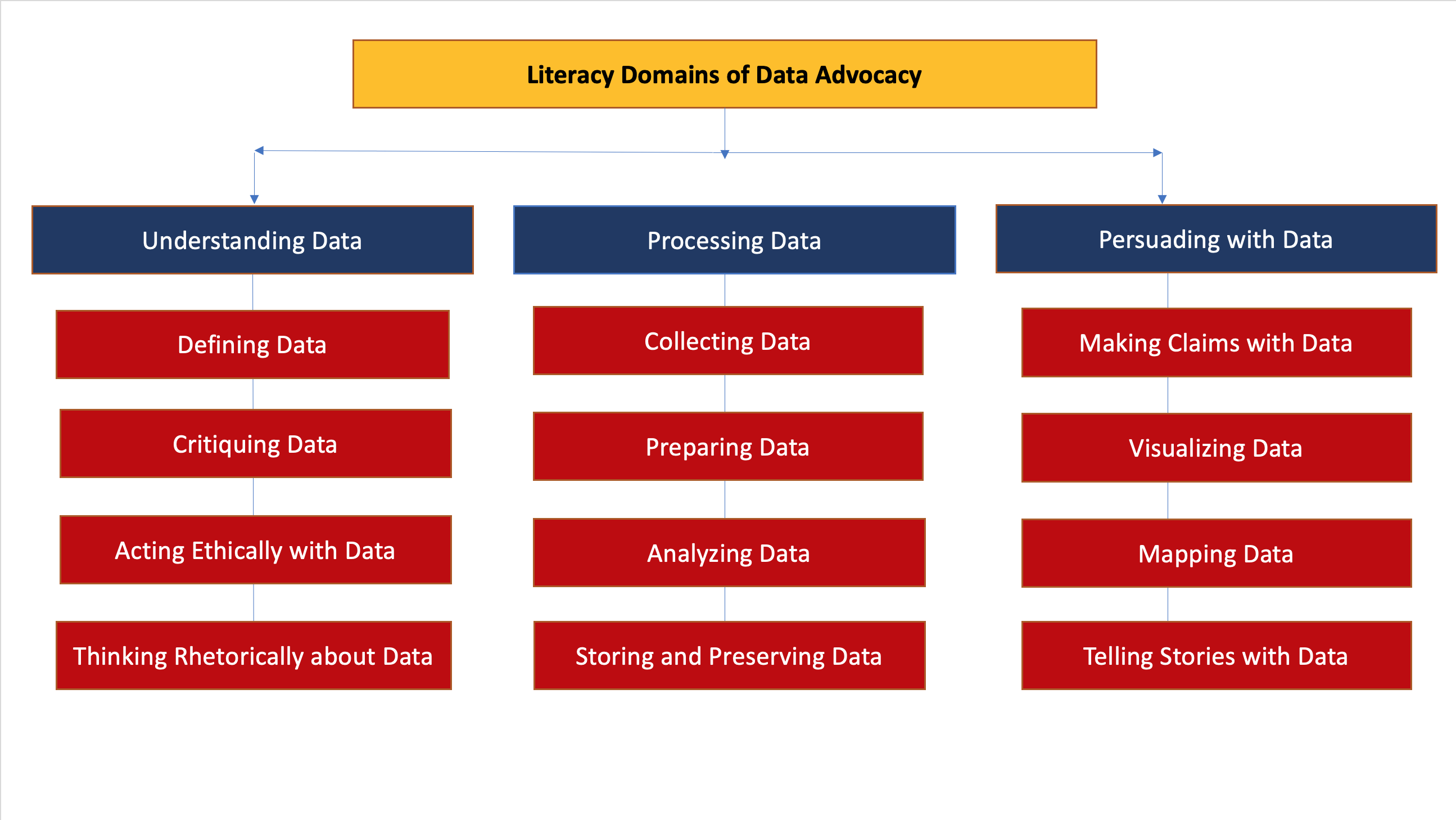The Literacy Domains of Data Advocacy
Data Advocacy for All has designed our toolkit around three key literacy domains in which students need to gain experience to develop the critical-rhetorical capacities to ethically and effectively work with data to instigate social change.
A literacy domain is a specific area or aspect of literacy development that encompasses certain mindsets, abilities, and practices that enable one to advocate with data in meaningful, ethical, and transformative ways.
We identify these three broad domains as Understanding Data, Processing Data, and Persuading with Data, and in each arena, we have identified four subdomains of knowledge, abilities, and skills:

Figure 1. This graphic showcases how all of the literacy domains of data advocacy are interrelated, including each of the three primary domains in navy—Understanding Data, Processing Data, and Persuading with Data—as well as the subdomains beneath each one in red.
As so organized, these literacy domains are presented as distinct and linear. But we envision these domains as overlapping and reciprocal. When we create maps with data, we are often telling stories. When we tell stories with data, we are often thinking rhetorically and using persuasive devices. However, for the sake of the toolkit’s content and organization, we have separated out these domains so that you, as teachers, can think about each of these domains more deeply and find relevant resources as needed.
Learn more about the three literacy domains and their subdomains of data advocacy!